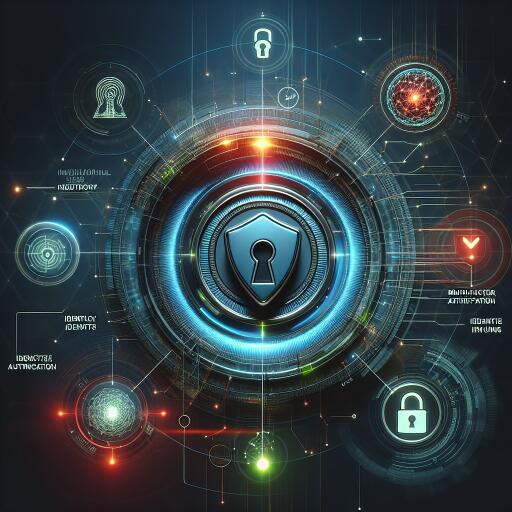Revolutionizing Security: The Role of Badge’s Device-Independent Multi-Factor Authentication in Safeguarding Digital Identities
In the murky depths of the dark web, digital identities are a hot commodity, especially those tied to health and finance records. The alarming rise in their value is attributed to the intricate challenge of tracing them back to their origin, compounded by the increasingly obsolete and vulnerable device-dependent multi-factor authentication (MFA) methods which have been the go-to for protection.
The reliance on specific devices as sole authentication anchors nets a spectrum of security loopholes ripe for exploitation by cybercriminals. These perpetrators weave sophisticated schemes, leveraging user authentication fatigue, phishing scams, and advanced adversary-in-the-middle attacks, all aimed at commandeering the device recovery process. It’s clear the conventional device-bound approach to security is faltering under the evolving cyber threat landscape.
Badge emerged on the scene, spearheaded by Tina Srivastava and her team, with the ambitious goal of reshaping this landscape. They envisioned a paradigm shift that places emphasis on the individual — not a device — as the cornerstone of trust in digital environments. Badge’s pioneering strategy removes the traditional ‘secrets’ from the authentication equation entirely, advancing a more integrated system where biometrics and private keys are rendered obsolete, enhancing security without compromising on accessibility.
The urgency for solutions like Badge is underscored by the persistent advancement of cybercriminal tactics. Techniques such as SIM swapping and living off the land (LOTL) attacks pose significant threats to industries where identity security is paramount, including healthcare and finance. Reports highlight a daunting uptick in successful breaches, with over 45 million patient records compromised in a single year and a surge in assaults targeting the financial sector.
Badge’s solution to the escalating issue of device-dependent MFA offers a breath of fresh air. By dissociating the authentication process from physical devices, Badge hands back control to the individual, establishing a ‘root of trust’ that significantly diminishes the vulnerability linked to device-centric approaches. This not only bolsters security but also streamlines the user experience, bypassing the convoluted fallback authentication processes attackers frequently exploit. Enrollment with Badge is a one-time affair, enabling seamless authentication across any device without the crutch of hardware tokens or biometric data storage.
The quick adoption of Badge within critical sectors attests to its efficacy and innovativeness. Industries that are on the frontline, such as healthcare and finance, rapidly recognized the value Badge delivers — a robust yet flexible security framework that does away with traditional hardware dependencies. This adoption has not only been driven by the direct benefits Badge offers to organizations but also by its growing network of high-profile partnerships. Collaborations with industry giants like Microsoft, Cisco Duo, and Okta further amplify Badge’s potential to redefine the landscape of digital identity security at scale.
Badge’s integration with Cisco Duo, in particular, highlights its role as a pivotal player in the future of secure digital identities. This partnership is poised to unlock new dimensions of identity verification and authentication, facilitating a shift towards frictionless, passwordless experiences bolstered by verified credentials. The synergy between Badge and Cisco Duo epitomizes the next leap in securing digital ecosystems against sophisticated cyber threats.
Looking ahead, the promise of Badge extends beyond its present achievements. With an unwavering commitment to integration and scalability, Badge envisions a future where it acts as the backbone of digital identity across the internet. Its compatibility with open standards bolsters this vision, ensuring a seamless integration with existing enterprise security frameworks. As Badge continues to expand its reach and capabilities, it remains a beacon for innovation in the quest for a safer digital realm.
In the face of an evolving cyber threat landscape, Badge stands out as a forward-thinking solution tackling the core challenges of identity security. By reimagining the role of the individual in the authentication process and fostering strategic partnerships, Badge is setting new standards for what’s possible in protecting digital identities against increasingly sophisticated attacks.









